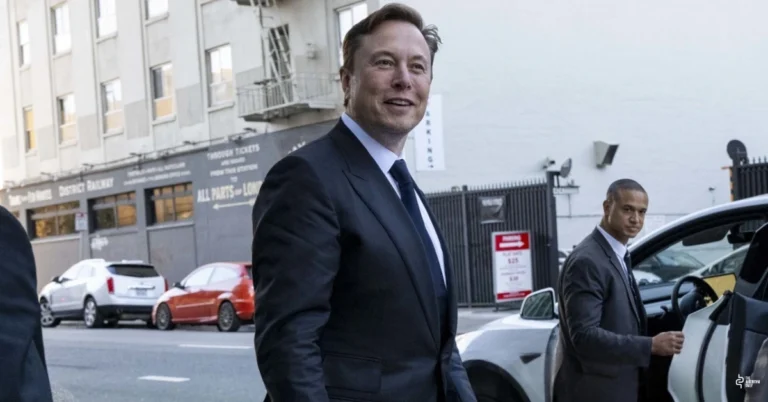THE ALGORITHM DAILY“Your Daily Dose Of AI News.” Top Story: Google Launches Gemini AI Platform for U.S. Government
Google has launched Gemini for Government, a new AI platform created in partnership with the U.S. General Services Administration (GSA). The package combines Google’s Gemini AI models, cloud services, enterprise search, image and video generation, NotebookLM, and pre-built AI agents for research and idea generation. Priced at less than $0.50 per agency for a year, the offer aims to give federal agencies low-cost access to Google’s AI tools as part of the GSA’s OneGov Strategy and President Trump’s AI Action Plan. The platform includes FedRAMP High-authorised security, identity and access management, AI-powered threat protection, and compliance features. Google says it wants to help agencies modernise workflows, improve efficiency, and scale AI safely across government operations. GSA Commissioner Josh Gruenbaum praised the move, saying it will provide agencies with powerful tools and flexibility while making government services more efficient for American taxpayers. Meta Hires Another Top Apple AI Researcher for Superintelligence LabsMeta has poached its fifth senior AI researcher from Apple, continuing a trend of high-profile hires for its new Meta Superintelligence Labs (MSL). The latest recruit, Frank Chu, previously led Apple’s AI teams focused on cloud infrastructure, training, and search. His move signals Meta’s determination to strengthen its AI research unit at a time when competition for top talent is intensifying across the industry. The hiring spree comes as Meta ramps up efforts to challenge rivals like OpenAI, Google, and Anthropic in the race for advanced AI models. By drawing experienced leaders from Apple, Meta aims to accelerate breakthroughs in superintelligence and bolster its long-term ambitions in AI. The move also underscores Apple’s struggles to retain top researchers while its rivals aggressively expand AI investments. OpenAI’s HR Chief Julia Villagra Resigns to Pursue Creative AI VisionOpenAI has confirmed that Julia Villagra, its Chief People Officer, will be leaving the company this Friday. She joined OpenAI in early 2024 as head of Human Resources and was promoted to Chief People Officer in March. In her departure announcement, Villagra cited a personal calling to use art, music and storytelling to help people understand the shift toward artificial general intelligence (AGI) AI that matches or exceeds human-level problem-solving. In the interim, Jason Kwon, OpenAI’s Chief Strategy Officer, will take over her responsibilities while the new CEO of Applications, Fidji Simo, leads the search for Villagra’s successor. Her departure comes amid a fierce industry talent war, where companies like Meta are offering eye-watering signing bonuses to attract AI talent. Meta Strikes $10B+ Cloud Deal with GoogleMeta has signed a $10 billion-plus, six-year cloud deal with Google, one of the largest in Google Cloud’s history. The agreement grants Meta access to Google’s servers, storage, and networking infrastructure to support its growing AI workloads. With AI driving massive demand for computing, Meta is expected to spend up to $72 billion on infrastructure in 2025. The deal reflects how tech rivals can still partner on critical infrastructure. For Google, the win strengthens its position against Amazon Web Services and Microsoft Azure in the battle for AI cloud dominance. The contract provides a major revenue boost and reinforces Google’s credentials in AI-specific computing. Analysts say it shows how cloud providers are now central to the AI arms race. The partnership highlights shifting alliances as competition for AI leadership intensifies worldwide. Crusoe Eyes $10B Valuation in AI Infrastructure PushCrusoe Energy Systems, a leading AI-focused data-centre provider, is in talks to raise about $1 billion in new equity and debt financing at a valuation near $10 billion, according to sources familiar with the matter. The company, which powers OpenAI’s Stargate facility in Texas, is emerging as a key player in the AI cloud infrastructure boom. Analysts say the move reflects investor confidence in Crusoe’s energy-efficient model and its critical role in building tomorrow’s AI computing backbone. Since pivoting from crypto mining to AI infrastructure, Crusoe has secured substantial backing from a $600 million Series D at a $2.8 billion valuation, including billion-dollar data-centre financing. Its energy-first model, combined with strong demand for GPU compute, has driven explosive growth, positioning the startup at the forefront of the “neocloud” surge in AI infrastructure providers. AI Tool of the DayFlair AIWhat it does: Flair AI specialises in AI-driven product photography and branded content creation. It allows users to generate polished images and videos for marketing, social media, and e-commerce using a visual drag-and-drop studio and built-in editing tools.
AI Word of the DayAGIDefinition: AGI stands for Artificial General Intelligence. It refers to AI systems that can perform any intellectual task that humans can do learning, reasoning, problem-solving, and adapting to new situations, without needing special training for each one. Why it matters: Most AI today is narrow AI, built for specific tasks like writing text, generating images, or playing chess. AGI would go beyond that, matching or even surpassing human-level intelligence across many fields. This is why it’s seen as both an exciting breakthrough and a major risk, depending on how it’s built and controlled. Example: A narrow AI can translate between languages because it was trained to do so, but an AGI could learn a new language on its own and use it to solve problems it hasn’t been trained on before. And that’s the scroll, crew. AI’s cooking up new heat every day, and we’re serving it fresh before anyone else. Catch you on the next wave. Staff Writer, The Algorithm Daily |
📲 Get the latest Tech & Startup News on our WhatsApp Channel
👉 Join Now





